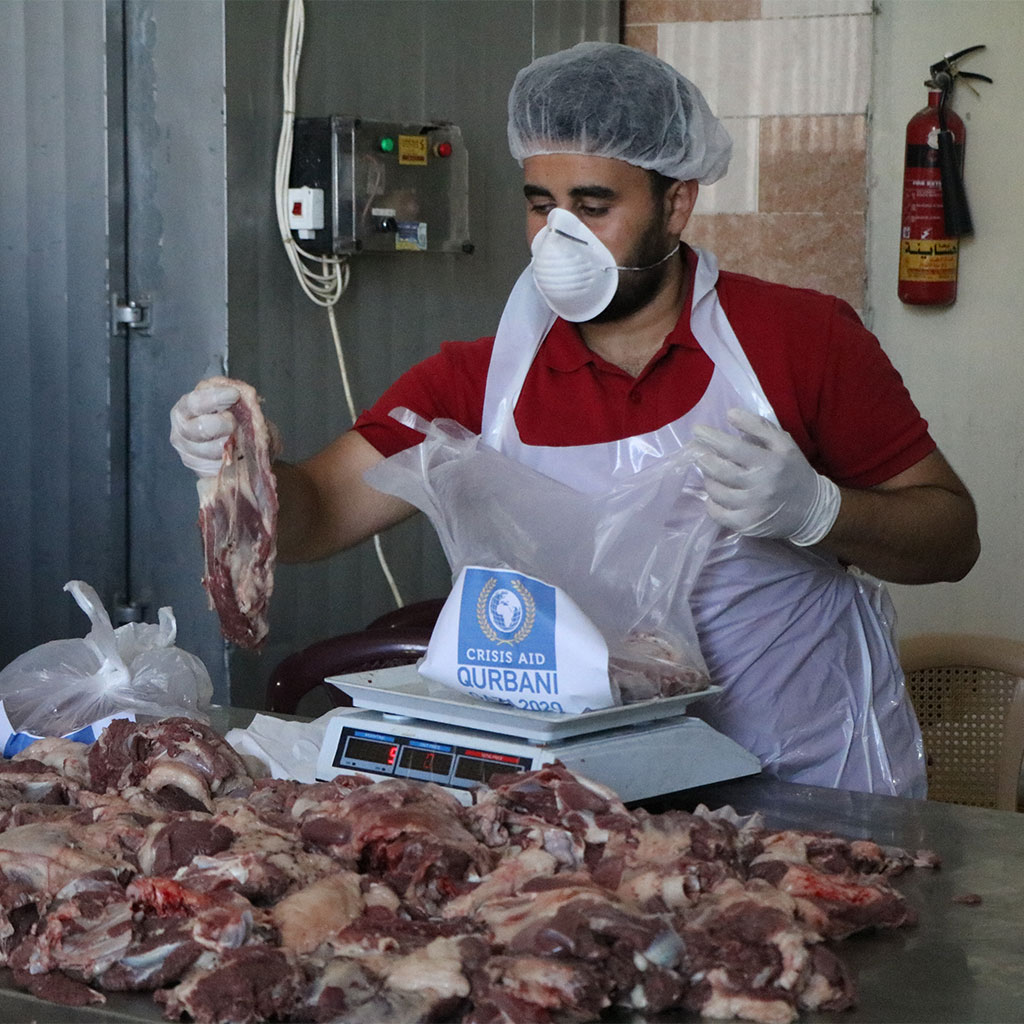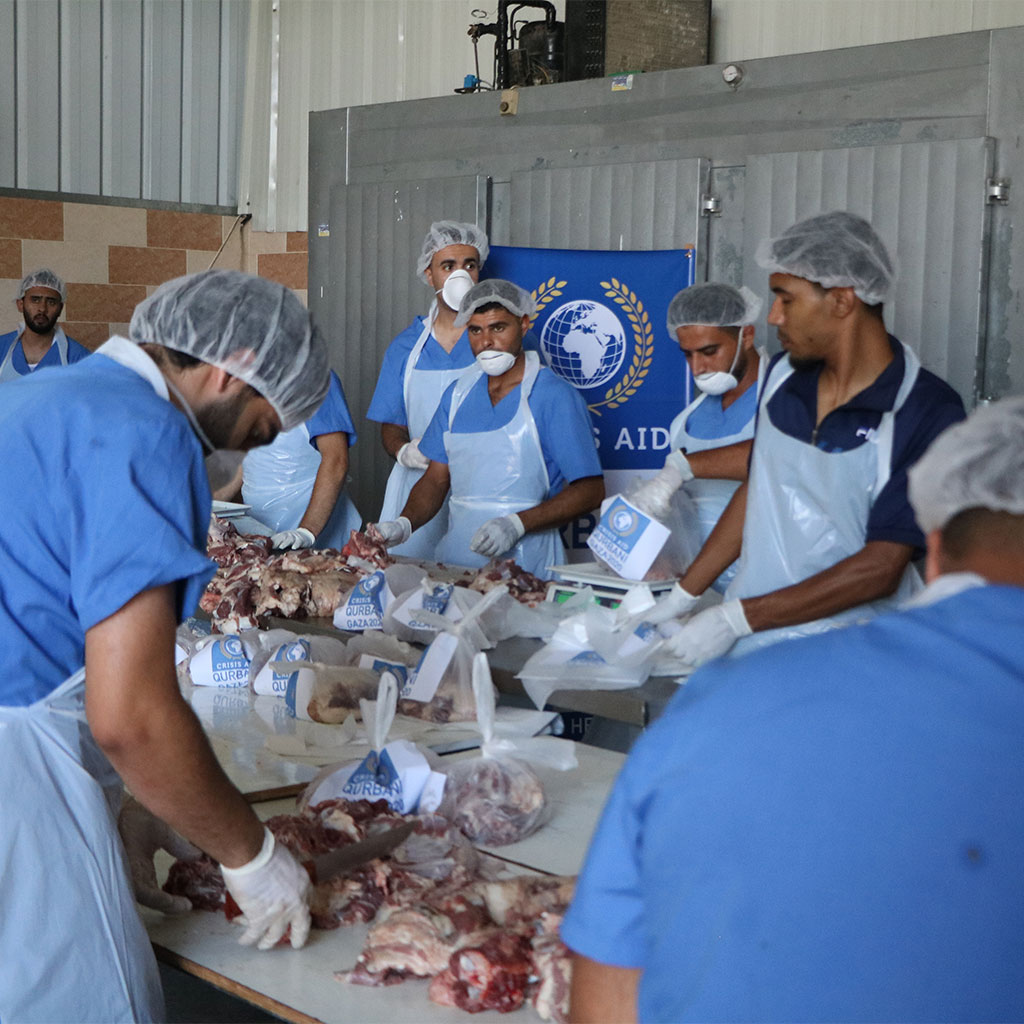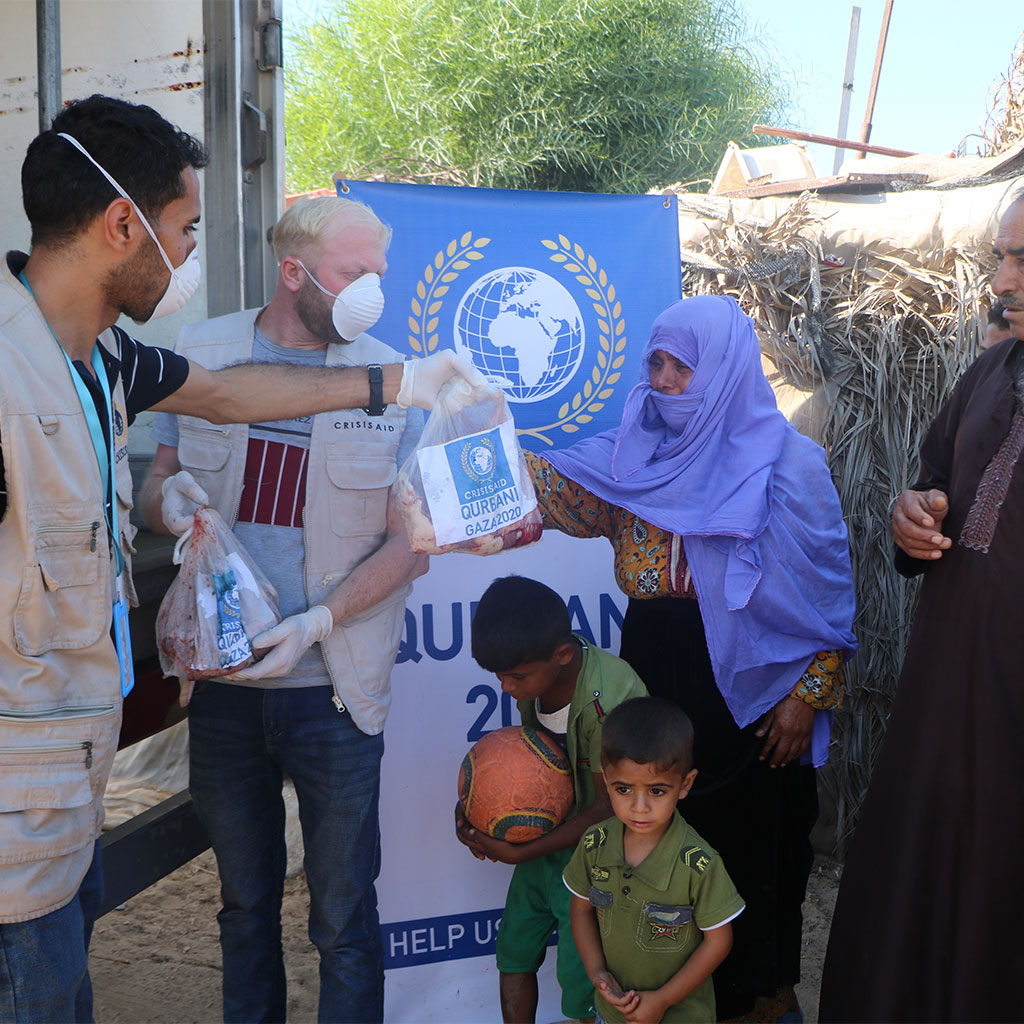QURBANI (UDHIYAH): FOLLOWING THE SUNNAH OF IBRAHIM (AS)
Share the Blessings of Eid al-Adha
Fulfill your Qurbani and provide fresh meat to families in need worldwide, Help feed the poor and fulfil your duty this Eid with compassion.
YOUR DONATIONS IN ACTION
Give your Qurbani with sincerity. Feed the poor. Honour the spirit of sacrifice.
Frequently asked questions
Find answers to common questions about Zakat, including eligibility, calculation, and how Crisis Aid distributes your donations to those in need.
Only specific animals can be used for Qurbani. These include:
Goats and sheep (must be at least 1 year old)
Cows and bulls (at least 2 years old)
Camels (at least 5 years old)
A goat or sheep covers one person’s Qurbani. A cow or camel can be shared among seven people.
The animal must be healthy and free from any defects. It must be slaughtered humanely and according to Islamic rulings. Crisis Aid oversees the full process to ensure the Qurbani is valid, ethical, and compliant with Islamic guidelines.
Crisis Aid delivers fresh Qurbani meat directly to those in greatest need. We focus on:
Orphans and widows
Elderly and disabled individuals
Families facing extreme poverty
Refugees and those in conflict zones
The meat is distributed promptly so that the beneficiaries can enjoy it during Eid. For many, this is the only time in the year they eat meat. Our teams work in the field to ensure every distribution is fair, timely, and handled with dignity.
Qurbani must be carried out during the days of Eid al-Adha:
Starting after the Eid prayer on the first day
Continuing until sunset on the third day
If done before the Eid prayer, the Qurbani is invalid. Crisis Aid ensures that every animal is slaughtered within the correct timeframe and under qualified supervision.
Yes. You can donate Qurbani for a family member, friend, or even someone who has passed away.
Simply make the intention at the time of giving. You don’t need to mention their name out loud at the time of slaughter. Crisis Aid will handle the Qurbani and ensure it is carried out correctly on their behalf.



